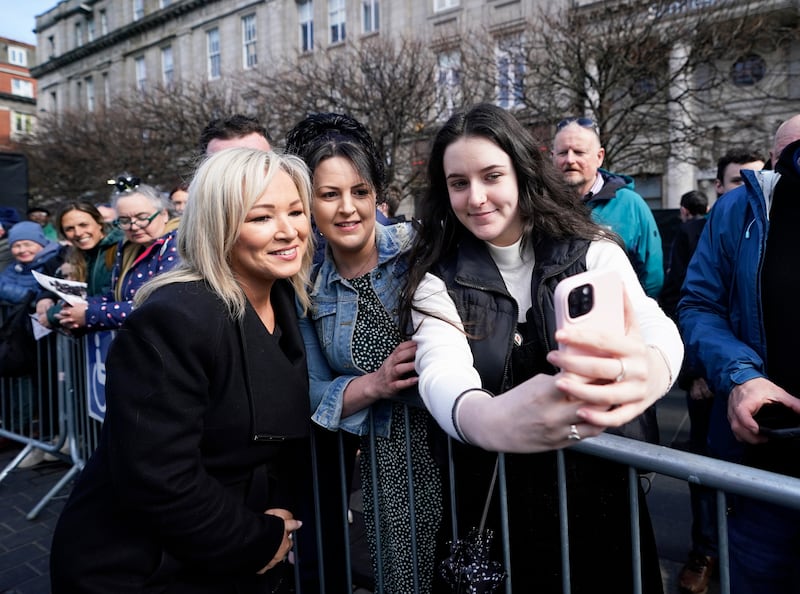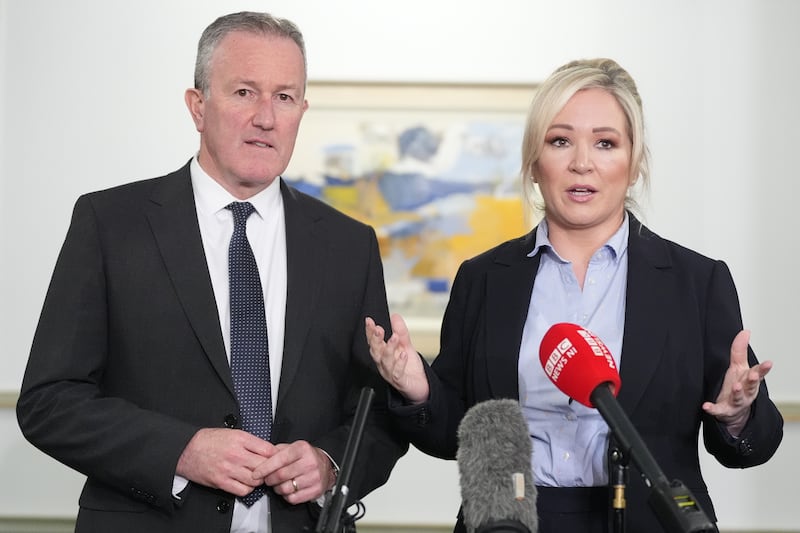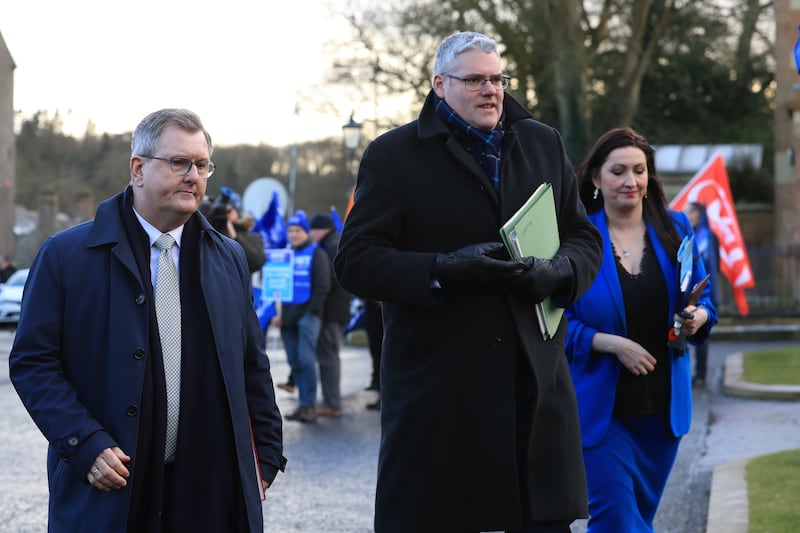Here’s one change that largely went unremarked by our unionist-dominated media.
Though UTV did broadcast the scene, they didn’t mention its significance. However, on Easter Monday there wasn’t a dickie bird on BBC NI of Michelle O’Neill in Dublin on Sunday, much less a report of the commemoration of the 1916 Rising she was attending.
Presumably it might have offended some unionist viewers, even though at the last elections in 2023 unionist voters were an electoral minority. There’s a long way to go before the unionist media lives up to the equality of status and parity of esteem enshrined in the Good Friday Agreement. The aspiration to Irish reunification is of equal political status to the maintenance of the union.
The occasion in Dublin was an important landmark because it was the first time a first minister was in attendance at the Rising commemoration, even if that wasn’t a newsworthy event for the local, publicly-funded broadcaster. It won’t be the last time either because, apart from the fact that O’Neill’s in office until 2027, the way things are going electorally there’s unlikely to be another unionist first minister. Closer links with Dublin will become commonplace, even routine, unremarkable – BBC please note.

You may have noticed Sinn Féin, in the person of Michelle O’Neill, quietly taking over the leadership of the north since the executive was restored and she took her rightful place. From her gracious speech at the re-opening of the assembly, O’Neill has set a tone of equality and inclusiveness which the DUP has found impossible to rebuff without sounding and looking churlish. It was O’Neill who initiated the meetings and phone calls on Good Friday after the Donaldson kerfuffle in the DUP. It was she who issued the first statement reinforcing the essential need to maintain stability.
There were lots of naysayers at republican splinter group marches and graveside speeches (for some reason in Ireland always portentously called ‘orations’) inexplicably complaining that Sinn Féin is running the no longer black north and fully participating in the official commemoration of the Rising alongside the President of Ireland. After all, instead they could be standing on a windswept hillside cemetery speaking to a handful of people and a couple of dogs. In contrast, the scene UTV broadcast of Mary Lou McDonald and Michelle O’Neill glad-handing the crowds in O’Connell Street demonstrated that northern republicans have arrived.
That arrival is reinforced by the confidence and leadership Sinn Féin figures show in their public appearances. For example, the detractors and begrudgers were out in force when O’Neill and Conor Murphy attended the DUP fig leaf East-West Council talking shop. Attending was an act of leadership, boycotting would have been petty-minded. It would have achieved nothing except to alienate the DUP.

Nothing was lost by attending and besides, as Murphy explained, it’s a British government confection, has no statutory basis, and doesn’t interfere with Intertrade Ireland. Not attending wouldn’t stop parts of the UK talking to itself. Furthermore, and here’s the important point, attending helps to show unionists, and particularly the DUP, that they have nothing to fear from a growing Sinn Féin majority in the north’s assembly and councils.
- Why did local broadcasters never ask Peter Robinson or Arlene Foster if they’d be first minister for all the people? – Brian FeeneyOpens in new window
- Opinion Is there anything to be said for another east-west talking shop? – Newton EmersonOpens in new window
- https://www.irishnews.com/opinion/is-there-anything-to-be-said-for-another-east-west-talking-shop-newton-emerson-YTVKFQ7GZVGLFNZCABOSDQPNSE/Opens in new window
The contrast between Sinn Féin and the absence of leadership in unionism is extraordinary. As the esteemed Alex Kane pointed out on Monday, unionists need to consider who they are, what it means to be a unionist and what they’re for – but as he acknowledged, that’s unlikely to happen. Who would convene such a meeting and who would decide the outcome?
On the other hand Sinn Féin has seen off its rivals and detractors, who have splintered into groupuscules so tiny as to be electorally impotent. It is their position as the biggest party in Ireland north and south, with unrivalled electoral authority in the north, that gives Sinn Féin the strength to reach out the hand to the DUP in a spirit of equality.
The contrast between Sinn Féin and the absence of leadership in unionism is extraordinary
So far it appears that the DUP has come in from the cold after a couple of years of futile posturing, as they came to terms with their dreadful Brexit errors and their diminished political status.

In the short term the party has difficult and testing times ahead as the Donaldson saga plays out, perhaps over months. The first task is to elect a new leader; it’s difficult to see a credible candidate other than Gavin Robinson. At least the indications are that he will show better political judgement than his predecessor.
The sooner the DUP gets on with that the better.




